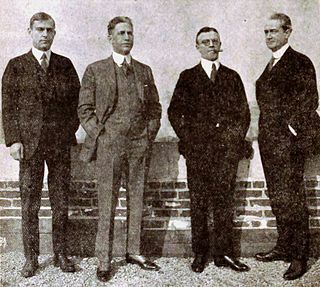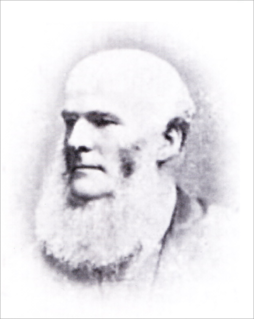A Quote by Friedrich Nietzsche
We find nothing easier than being wise, patient, superior. We drip with the oil of forbearance and sympathy, we are absurdly just, we forgive everything. For that very reason we ought to discipline ourselves a little; for that very reason we ought to cultivate a little emotion, a little emotional vice, from time to time. It may be hard for us; and among ourselves we may perhaps laugh at the appearance we thus present. But what of that! We no longer have any other mode of self-overcoming available to us: this is our asceticism, our penance.
Quote Topics
Among
Any
Appearance
Asceticism
Available
Being
Being Wise
Cultivate
Discipline
Drip
Easier
Emotion
Emotional
Everything
Find
Forbearance
Forgive
From Time To Time
Hard
Just
Laugh
Little
Longer
May
Mode
Nothing
Oil
Other
Ought
Our
Ourselves
Overcoming
Patient
Penance
Perhaps
Present
Reason
Self
Superior
Sympathy
Than
Thus
Time
Us
Very
Vice
Wise
Related Quotes
There are various art forms we may or may not have talent for, may or may not have time for, and we may or may not be able to express ourselves in, but we ought to consider this fact-that whether we choose to be an environment or not, we are. We produce an environment other people have to live in. We should be conscious of the fact that this environment which we produce by our very 'being' can affect the people who live with us or work with us.
I think that perhaps we always fall in love the very first instant we see the man of our dreams, even though, at the time, reason may be telling us otherwise, and we may fight against that instinct, hoping against hope that we won't win, until there comes a point when we allow ourselves to be vanquished by our feelings.
There are so many kinds of madness, so many ways in which the human brain may go wrong; and so often it happens that what we call madness is both reasonable and just. It is so. Yes. A little reason is good for us, a little more makes wise men of some of us--but when our reason over-grows us and we reach too far, something breaks and we go insane.
We forgive, if we are wise, not for the other person, but for ourselves. We forgive, not to erase a wrong, but to relieve the residue of the wrong that is alive within us. We forgive because it is less painful than holding on to resentment. We forgive because without it we condemn ourselves to repeating endlessly the very trauma or situation that hurt us so. We forgive because ultimately it is the smartest action to take on our own behalf. We forgive because it restores to us a sense of inner balance.
We are not saints yet, but we, too, should beware. Uprightness and virtue do have their rewards, in self-respect and in respect from others, and it is easy to find ourselves aiming for the result rather than the cause. Let us aim for joy, rather than respectability. Let us make fools of ourselves from time to time, and thus see ourselves, for a moment, as the all-wise God sees us.
May we all be in such a condition of soul, such an attitude of heart as will fit us for any little work in which our gracious Lord may be pleased to use us- not seeking a place for ourselves, but lovingly serving all. The Lord, in His great mercy, grant that thus it may be, with all His beloved people!
It is possible to move through the drama of our lives without believing so earnestly in the character that we play. That we take ourselves so seriously, that we are so absurdly important in our own minds, is a problem for us. We feel justified in being annoyed with everything. We feel justified in denigrating ourselves or in feeling that we are more clever than other people. Self-importance hurts us, limiting us to the narrow world of our likes and dislikes. We end up bored to death with ourselves and our world. We end up never satisfied.
A protective self-narrative during conflict and duress sometimes obscures us from seeing the worst in ourselves. When the self-sustaining haze lifts after that conflict has subsided, we may recognize in ourselves the flaws the other saw in us at the time that we didn't have the emotional bandwidth to examine in the moment.
We know when we are following our vocation when our soul is set free from preoccupation with itself and is able to seek God and even to find Him, even though it may not appear to find Him. Gratitude and confidence and freedom from ourselves: these are signs that we have found our vocation and are living up to it even though everything else may seem to have gone wrong. They give us peace in any suffering. They teach us to laugh at despair. And we may have to.
I think it's time we ask ourselves if we still know the freedoms that were intended for us by the Founding Fathers... Whether we believe in our capacity for self-government or whether we abandon the American Revolution and confess that a little intellectual elite in a far-distant capital can plan our lives for us better than we can plan them for ourselves.
With a little time, and a little more insight, we begin to see both ourselves and our enemies in humbler profiles. We are not really as innocent as we felt when we were first hurt. And we do not usually have a gigantic monster to forgive; we have a weak, needy, and somewhat stupid human being. When you see your enemy and yourself in the weakness and silliness of the humanity you share, you will make the miracle of forgiving a little easier.
The characteristic human trait is not awareness but conformity, and the characteristic result is religious warfare. Other animals fight for territory or food; but, uniquely in the animal kingdom, human beings fight for their 'beliefs.' The reason is that beliefs guide behavior, which has evolutionary importance among human beings. But at a time when our behavior may well lead us to extinction, I see no reason to assume we have any awareness at all. We are stubborn, self-destructive conformists. Any other view of our species is just a self-congratulatory delusion.
The Louvre is the book in which we learn to read. We must not, however, be satisfied with retaining the beautiful formulas of our illustrious predecessors. Let us go forth to study beautiful nature, let us try to free our mids from them, let us strive to express ourselves according to our personal temperaments. Time and reflection, moreover, little by little modify our vision, and at last comprehension comes to us.










































